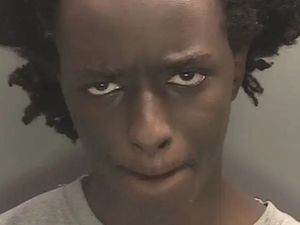New measures to ‘dynamise’ the economy in Queen’s Speech, says Government
The Prince of Wales will read the Queen’s Speech for the first time as the monarch misses the State Opening of Parliament.
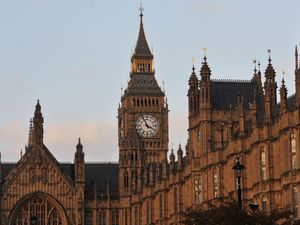
The Queen’s Speech will contain new measures to “dynamise” the UK to ensure people can pay the bills, a Government minister has said.
But while policing minister Kit Malthouse acknowledged Government “alarm” at predictions of soaring inflation, he downplayed hopes of rapid help being announced on Tuesday.
The Prince of Wales will read the Queen’s Speech for the first time as the monarch misses the State Opening of Parliament for the first time in almost 60 years.
The Queen, 96, pulled out of the ceremonial occasion – when she reads out the Government’s legislative programme for the forthcoming parliamentary session – as she continued to experience “episodic mobility problems”.
In the Queen’s absence, Charles will take on the head of state’s major constitutional duty, in a move which will be interpreted as a significant shift in his responsibilities as a king-in-waiting.
The Duke of Cambridge, also a future monarch, will attend the State Opening, the first time he has done so, with the royal function of opening a new parliament delegated to both Charles and William by the Queen.
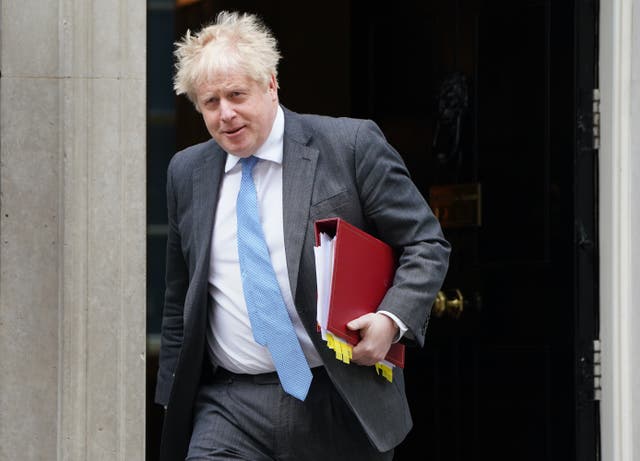
At the same time, the event is an important moment in the political calendar as Boris Johnson seeks to regain the initiative after the rows over lockdown parties and the heavy losses suffered by the Tories in the local elections.
Mr Malthouse declined to give much detail but insisted there will be “quite a lot of nice things coming in this box of chocolates” when asked about the contents of the Queen’s Speech.
Asked if there might be a cut in VAT or cuts in income tax, he told LBC: “That’s for a budget, that wouldn’t be for a Queen’s Speech, but I think what you will see today is us taking advantage, for example, of Brexit freedoms to strengthen our economy and make it more dynamic, as well as doing a variety of other issues.
“I don’t want to get reprimanded by the Speaker by telling you but I think you’ll find there’s quite a lot of nice things coming in this box of chocolates.”
He said there will be “assertive new measures”, telling GB News they would “dynamise our economy, drive it forward, so that in the medium term we can pay our bills both at home and as a nation”.
Speaking to BBC Breakfast, he said the Speech will be about looking at opportunities to “remove some of the regulation which is holding us back, really grow our economy strongly into a high skill, high wage economy”.
But he said while it is an “incredibly challenging” time for people, legislation can take “many months, sometimes over a year, before it hits the statute book”.
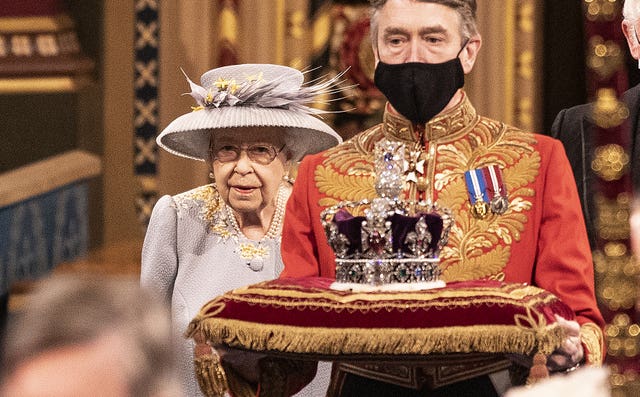
He told Sky News: “We look with alarm at the predictions the Bank of England have made just in the last week or so of inflation peaking towards the end of the year, and we will have to think carefully about what our response to that might be.”
The speech will include a new crackdown on “guerrilla protests” with jail sentences of up to six months and unlimited fines for those who glue themselves to roads or “lock on” to public transport infrastructure.
Home Secretary Priti Patel said the measures were necessary to prevent protest groups like Insulate Britain and Extinction Rebellion from bringing the country to “a grinding halt”.
Mr Malthouse said new serious disruption prevention orders are aimed at deterring people from “hooligan” protesting.
Ministers had originally tried to introduce measures through the now-passed Police, Crime, Sentencing and Courts Bill, but were blocked by the House of Lords.
In a sign of the Government’s determination to drive them through now, officials said the legislation could be introduced in Parliament as early as Wednesday.
In all, the speech will include 38 Bills, including seven measures scrapping EU regulation – covering areas from data reform to gene-editing to financial services – as ministers seek to capitalise on the benefits of Brexit.
Mr Johnson said it was part of a wider programme to get the country “back on track” after the pandemic while addressing the cost-of-living challenges.
In a tweet ahead of the Speech, the Prime Minister said the Government is “focused like a laser” on the issues that matter most to the public.
He wrote: “In these challenging times, this Government will provide the leadership needed to deliver for you. Your priorities are our priorities and we are focused like a laser on the issues that matter to you most.”
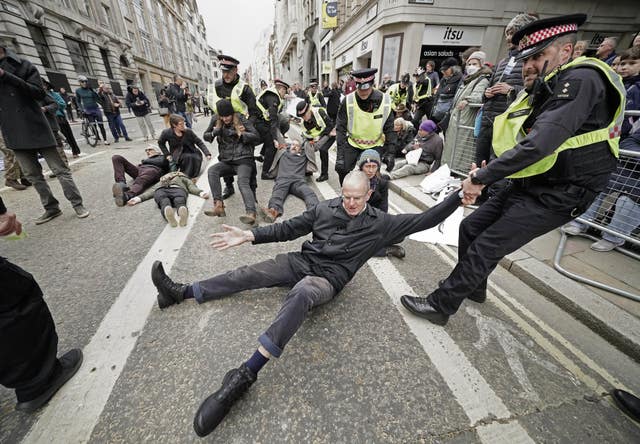
John Allan, chairman of Tesco, said there is an “overwhelming case” for a windfall tax on energy companies after seeing the supermarket’s customers “extremely stretched”.
He told BBC Radio 4’s Today programme: “I think that would be the single biggest thing that could be done.”
Underlining the sense of change on Tuesday, the Queen’s throne in the House of Lords will remain empty for the speech with Charles and the Duchess of Cornwall, who will accompany him, taking their usual places.
The only previous occasions during her reign when the Queen missed the State Opening were in 1959 and 1963 when she was pregnant, first with Prince Andrew and then Prince Edward. On each occasion the speech was read by the Lord Chancellor.
Buckingham Palace said in a statement said that Queen had “reluctantly” decided not attend this year following advice from the royal doctors.
Other measures in this year’s speech are expected to include a British Bill of Rights to replace the Human Rights Act, which enshrines the European Convention on Human Rights in UK law.
A Schools Bill for England will crack down on truancy, beef up the powers of education watchdogs and reform the funding system, while a Media Bill will enable the privatisation of Channel 4.
A Levelling Up and Regeneration Bill is expected to give local leaders powers to rejuvenate high streets, by forcing landlords to rent out empty shop units.
A draft Mental Health Bill will overhaul existing powers to protect patient liberty and prevent those with learning difficulties from being detained without their consent.



